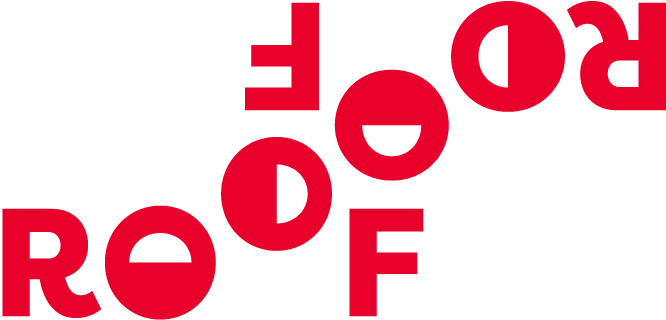
Jan 2, 2024 | Industry News, Marketing, SEO, Web Design
Introduction to Roofing Marketing Agencies
In today’s competitive market, roofing companies are increasingly turning to specialized marketing agencies to help them stand out. A roofing marketing agency specializes in crafting tailored marketing strategies designed specifically for roofing businesses. These agencies understand the intricacies of the roofing industry, from seasonal demand fluctuations to the unique selling points of different roofing materials. With their expertise, they can elevate a brand, reaching more customers and securing more projects.
The Role of a Roofing Marketing Agency
A roofing marketing agency plays a crucial role in defining and implementing effective marketing strategies tailored for the roofing sector. Their services encompass a wide range of marketing aspects, from digital marketing to traditional advertising and everything in between.
Digital Marketing Services
Digital marketing is at the heart of what most roofing marketing agencies offer. This can include:
- Website Development and Optimization: Creating a professional, user-friendly website that performs well in search engine results.
- SEO (Search Engine Optimization): Optimizing content and HTML source code to increase a website’s visibility on search engines like Google.
- Social Media Marketing: Enhancing presence on platforms like Facebook, Twitter, and Instagram to engage with a broader audience.
- Email Marketing: Crafting targeted and personalized email campaigns to nurture leads and inform clients about services and promotions.
Traditional Advertising
Though digital marketing is prevalent, traditional methods still play a vital role, especially in local markets. Common traditional marketing tactics include:
- Direct Mail Campaigns: Sending flyers, postcards, and promotional materials directly to potential customers within a specific area.
- Radio and Local TV Ads: Establishing a brand presence in a community by appearing on local media outlets.
- Outdoor Advertising: Utilizing billboards and signage to catch the eye of local homeowners and businesses potentially in need of roofing services.
Benefits of Hiring a Roofing Marketing Agency
Employing a roofing marketing agency comes with multiple benefits that can lead to substantial growth for a roofing business. Key benefits include:
Expertise in the Roofing Industry
These agencies have a deep understanding of the roofing market and customer base, which is vital in crafting effective messages and campaigns that resonate with target audiences.
Cost-Effectiveness
Outsourcing marketing efforts to a specialized agency can be more cost-effective than managing in-house teams, especially when it comes to needing a wide range of skills that might otherwise require multiple employees or contractors.
Access to Advanced Tools and Analytics
Marketing agencies have access to advanced tools and technologies that many roofing companies might not invest in independently. These tools can track campaign performance, monitor SEO progress, and streamline other marketing efforts efficiently.
Scalability
With a marketing agency, roofing companies can scale their marketing efforts up or down depending on their budget and business goals. This flexibility helps manage expenses while still maximizing outreach and engagement.
Choosing the Right Roofing Marketing Agency
Selecting the appropriate marketing agency is crucial. It’s important to consider their experience within the industry, their portfolio of past work, and their understanding of the roofing business’s specific needs. Discussion with potential agencies should include clarity on communications, reporting, cost structuring, and the overall strategic approach they would employ.
Conclusion
Hiring a roofing marketing agency can provide a robust path to enlarging your customer base, increasing sales, and building a stronger brand. By leveraging specialized expertise and advanced marketing techniques, roofing companies can achieve greater market penetration and sustained business growth. In an era where marketing is increasingly complex and critical, partnering with the right agency can be a significant strategic advantage.

May 3, 2023 | Industry News, Marketing, SEO, Web Design
Introduction to Contractor Marketing Services
In today’s competitive business environment, contractors across various industries such as construction, electrical, plumbing, and HVAC, face the challenge of not only delivering high-quality services but also effectively marketing their businesses. The right marketing strategies can dramatically increase visibility, appeal to potential customers, and boost profitability. This article explores top contractor marketing services that can help contractors strengthen their market presence and achieve business growth.
Understanding Digital Marketing for Contractors
Marketing for contractors has evolved significantly over the last decade with digital marketing becoming increasingly significant. Digital marketing for contractors involves various strategies aimed at reaching potential customers through digital platforms such as search engines, social media, email, and websites. A tailored digital marketing approach can help contractors not only survive but thrive in this competitive market.
SEO (Search Engine Optimization)
SEO is a crucial element of digital marketing that involves optimizing a website to rank higher in search engine results, making it easier for potential customers to find a contractor’s business online. For contractors, local SEO is particularly important as it optimizes visibility for local searches, which can directly lead to job opportunities and increased revenue. Effective SEO strategies include using relevant keywords, optimizing website content and structure, building backlinks, and ensuring the website is mobile-friendly.
PPC (Pay-Per-Click) Advertising
PPC is an internet advertising model used to drive traffic to websites, where an advertiser pays a publisher (typically a search engine, website owner, or a network of websites) when the ad is clicked. PPC campaigns can be highly targeted, offering immediate results that are easy to measure and track. They are particularly useful for contractors as they can target potential customers who are actively searching for specific services in real-time.
Social Media Marketing
Social media platforms like Facebook, Instagram, and LinkedIn offer powerful tools for building brand awareness and engagement. Contractors can use these platforms to showcase their work, share customer testimonials, provide helpful DIY tips, and communicate with potential and existing customers. Social media ads can also be highly targeted based on geographic location, demographics, interests, and behaviors, making them a cost-effective way to increase visibility and generate leads.
Email Marketing
Email marketing remains one of the most efficient ways to maintain relationships with existing customers and reach new ones. Contractors can use email newsletters to share important updates, promotions, new services, or tips that homeowners and businesses might find useful. Segmenting email lists based on customer interests or past projects can lead to higher engagement rates and conversion.
Website Design and Optimization
A professional, user-friendly website serves as the base of a contractor’s online presence. An optimized website must be visually appealing, mobile-responsive, and easy to navigate. It should clearly communicate what services are offered, where they are offered, and how potential customers can request these services. Additionally, integrating strong calls-to-action (CTAs) can guide visitors towards engaging with the contractor’s business, whether through filling out a contact form, signing up for a newsletter, or making a phone call.
Reputation Management and Online Reviews
For contractors, reputation can be everything. Many potential customers will research online reviews and testimonials before deciding to hire a contractor. Actively managing these reviews by responding to feedback, addressing concerns in a professional manner, and encouraging satisfied customers to leave positive reviews can significantly influence public perception and lead conversion rates.
Case Studies and Content Marketing
Showing off past projects through detailed case studies or portfolio galleries can significantly enhance a contractor’s credibility and attract higher-quality leads. Content marketing can also play a role here by demonstrating expertise through in-depth blog posts, videos, and infographics that help potential customers solve problems or learn more about common industry issues.
Summary
Contractor marketing services are essential tools in a contractor’s arsenal for attracting and retaining customers. By leveraging SEO, PPC, social media marketing, email marketing, and effective website design, contractors can enhance their online presence, build trust with their audience, and ultimately, grow their business more effectively. Finally, maintaining a strong reputation online and showcasing skills through content marketing are invaluable tactics for long-term success.

Apr 28, 2023 | Industry News, Marketing
When it comes to your business, having a solid and reliable roof over your head is crucial. It protects your building from the elements and ensures the safety of everything and everyone inside. However, roofing can be a bit tricky, especially because it involves a lot of different materials and techniques. Let’s dive into the world of business roofing to help you understand how it all works.
Types of Business Roofing
There are several key types of roofing used in the business world. Here are a few:
- Flat Roofs: These are very common in commercial buildings. They are easier to install over large areas and can be more cost-effective. However, they need good drainage to prevent water from pooling and causing damage.
- Metal Roofs: Known for their durability, metal roofs can last up to 50 years or more. They’re resistant to extreme weather conditions and can also help in reducing energy costs by reflecting sunlight.
- Shingle Roofs: While more common in residential buildings, some businesses choose shingle roofs for their aesthetic appeal. They come in many materials, including asphalt, wood, and slate.
- Built-Up Roofing (BUR): This type is made with several layers of bitumen and reinforcing fabrics. It’s a thick, durable option for flat roofs.
- Green Roofs: These roofs are covered with plants, which can reduce heating and cooling costs, manage water runoff, and provide a pleasant aesthetic. However, they need additional structural support to handle the extra weight.
Important Factors to Consider
When choosing the right roof for your business, you should think about a few important things:
- Weather: Your local climate plays a huge role in determining the best type of roof. For example, areas with heavy snowfall need roofs that can bear the weight of the snow.
- Energy Efficiency: Some roofing materials and colors can reflect sunlight, helping to keep your building cooler and reduce your air conditioning costs during the warmer months.
- Maintenance: Different roofs require different levels of maintenance. It’s important to know how often your roof will need care and what kind of costs are involved.
- Cost: The initial cost of a roof can vary widely depending on the material and the size of your building. Remember to also consider the long-term costs of maintenance and potential energy savings.
Getting the Right Help
Picking the right roof and making sure it’s properly installed can be a big task. It’s a good idea to get help from professionals who specialize in commercial roofing. They can give you personalized advice based on your building’s specifications and your local climate. Also, a good roofing contractor will offer warranties for their work, giving you peace of mind.
Remember, your business’s roof is a big investment. Taking the time to understand your options and make informed decisions will help ensure that you get the best value and protection for your business. Whether you’re installing a new roof or maintaining an existing one, knowing the basics of business roofing can go a long way.

Apr 27, 2023 | Industry News, Sales
Understanding Customer Acquisition Cost
Customer Acquisition Cost (CAC) is a crucial metric for any business, particularly in the marketing and financial domains. It measures the total cost of acquiring a new customer, considering marketing and sales efforts. Accurately calculating CAC helps companies evaluate the efficiency of their investment strategies and can signal whether adjustments are necessary for future marketing campaigns or sales tactics.
Steps to Calculate Customer Acquisition Cost
Step 1: Determine the Time Period
The first step in calculating CAC is to define the time period over which the costs and new customers will be measured. This could be a quarter, a year, or any period relevant to your business goals and reporting practices.
Step 2: Aggregate Relevant Costs
Gather all expenses directly related to acquiring new customers during the chosen time period. This includes:
- Marketing Expenses: Costs associated with advertising, marketing staff, content production, paid media, and promotional events.
- Sales Expenses: Salaries of sales personnel, commissions, and costs of sales support materials and activities.
- Software/Subscriptions: Any tools or software used primarily for marketing and sales automation.
- Overheads: Allocate a portion of overhead that directly supports marketing and sales activities. This can include utilities or rent for spaces dedicated to these departments.
Step 3: Count New Customers Acquired
Count the total number of new customers acquired during the same period that the costs were recorded. Ensure accuracy in tracking to include only those customers who truly are new to the business.
Step 4: Perform the Calculation
Use the formula:
CAC = Total Acquisition Costs / Total New Customers Acquired
Divide the total acquisition costs by the total number of new customers acquired to find the CAC. For example, if your total costs are $100,000 and you acquired 500 new customers, your CAC is $200 per new customer.
Examples of CAC Calculation
Example 1: A small business spends $10,000 on marketing and sales. They acquire 50 new customers. Their CAC is thus $10,000 / 50 = $200 per customer.
Example 2: A larger company spends $500,000 on comprehensive marketing campaigns and its sales team. They acquire 1,000 new customers. Thus, their CAC calculates as $500 per customer ($500,000 / 1,000).
Understanding CAC in Different Contexts
CAC can significantly vary depending on the industry, the scalability of operations, and the target market segments. It’s imperative for businesses to benchmark their CAC against industry standards to gauge performance. Lower CAC often reflects efficient marketing and sales operations, whereas a higher CAC suggests that strategies might need refinement for better return on investment.
Optimizing Customer Acquisition Cost
After calculating the CAC, businesses should explore strategies to optimize their marketing and sales processes. This may include investing in more effective marketing channels, refining the sales process, or implementing more sophisticated customer tracking and engagement tools. By continuously monitoring and striving to improve CAC, companies can increase their profitability and ensure sustainable growth.
In conclusion, calculating Customer Acquisition Cost is an essential practice for businesses to manage and optimize their investment in acquiring new customers. It not only helps in assessing the effectiveness of marketing and sales efforts but also assists in financial planning and strategy development.




